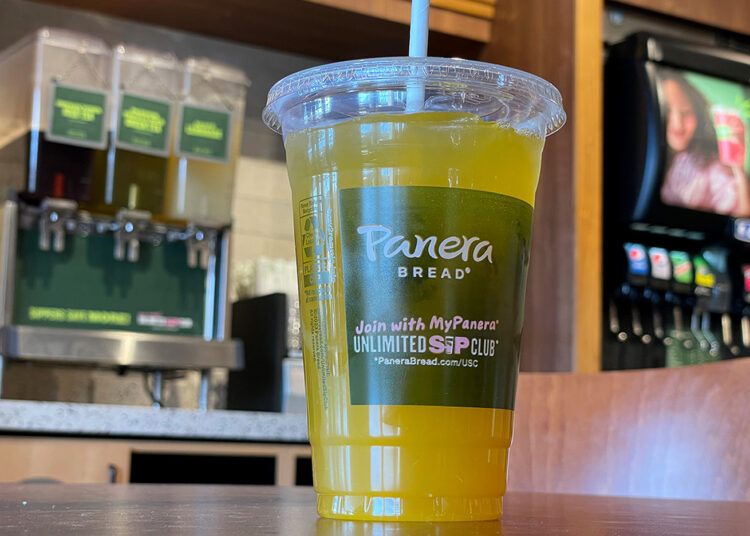Panera Bread’s “Charged Lemonades” contain nearly the daily amount of caffeine that is designated safe for adults. Justin Sullivan/Getty
After Panera’s Charged Lemonade was blamed for a teen’s death, it’s past time companies were much more transparent about how much caffeine is in what we drink
This post originally appeared in the November 5, 2023 edition of Eater Today, a place for the freshest news from the food world every day. Subscribe now.
This week, Panera Bread added a crucial warning to its menu. A 21-year-old died of cardiac arrest after drinking one of the restaurant’s “Charged Lemonades,” which boast about 390 milligrams of caffeine. The victim had a heart condition and avoided caffeine, but her family claims in a wrongful death lawsuit against the restaurant that the drink was not advertised as an “energy drink.”
Even if the “charged” name gave you a clue as to the lemonade’s contents, it’s ridiculous to think that one cup would give you nearly the daily amount of caffeine that is designated safe for adults. But, potentially dangerous and deceptive advertising aside, when did food brands start thinking everyone wanted to be hyper-caffeinated all the time?
It feels like caffeine has been slipping into more parts of our lives than ever before. Mountain Dew has its “morning” energy drink, and Coca-Cola launched a soda made with coffee. Restaurants like Sonic and TGI Friday’s have sugary slushies mixed with Red Bull. And brands like PBR and La Colombe have experimented with hard coffees, mixing alcohol and caffeine, which we already know ends badly.
There has been pushback. In addition to the wrongful death suit against Panera, earlier this summer, Chuck Schumer called for an FDA investigation into the caffeine content of Prime beverages, which were blowing up on TikTok. In 2013, the senate held a hearing with energy drink makers like Monster, Rockstar, and Red Bull to warn them about advertising to children.
Caffeine remains one of humanity’s favorite drugs (a close second to penicillin, for obvious reasons). Around the 17th century, “[caffeine] ushers in what amounts to a new form of consciousness, a new way of perceiving the world that was incredibly helpful to things like the scientific revolution and the capitalist revolution,” Michael Pollan told Gastropod. “Because it cleared the Western mind, which had been badly clouded by alcohol.” It makes sense. For most people, caffeine has the effect of making us feel alert and focused, which in small quantities is quite useful.
But it’s only right that consumers should have some idea of how much caffeine they’re getting in any one serving. Panera has now added a warning to the Charged Lemonade saying it contains the same amount of caffeine as its dark roast coffee — except that’s not really true either. A large charged lemonade contains 100 milligrams more caffeine than the chain’s large dark roast, which already has 268 milligrams of caffeine. That’s half of a 5-hour Energy! Stay safe out there.














